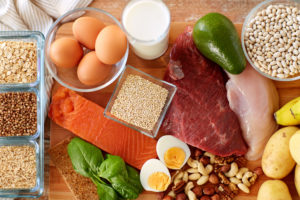
Surgery is like running a marathon for your body. After surgery many people do not want to eat for a multitude of reasons- they don’t have the taste for it, they don’t want to gain weight during recovery, they feel nauseous.
YOU MUST EAT. PROTEIN.
- Statistically, you are at risk for impaired wound healing if you have weight loss, inadequate protein intake, inadequate nutrient intake, extremely low or high BMI, and hypoalbuminemia.
- WHAT DOES PROTEIN DO? Protein helps you make collagen, helps new blood vessels form, and helps with tissue remodeling and wound contraction. When you have low protein, it causes issues with your immune function, making it hard to fight infection.
- GOAL PROTEIN INTAKE is 1 gram protein / kg of body weight.
- Getting protein in whole foods is better than shakes and supplements.
- Red meat is particularly good.
I advocate a high protein diet to all of my patients around the time of surgery. For a variety of reasons, some patients do not comply. I see issues with wound healing in patients who have poor diet after surgery- an incision opens up, an infection happens along the skin edge, an ulceration won’t heal up. When they change their diet it is amazing to see the change, and the wounds heal up quickly.
So remember, PROTEIN IS GOOD.
